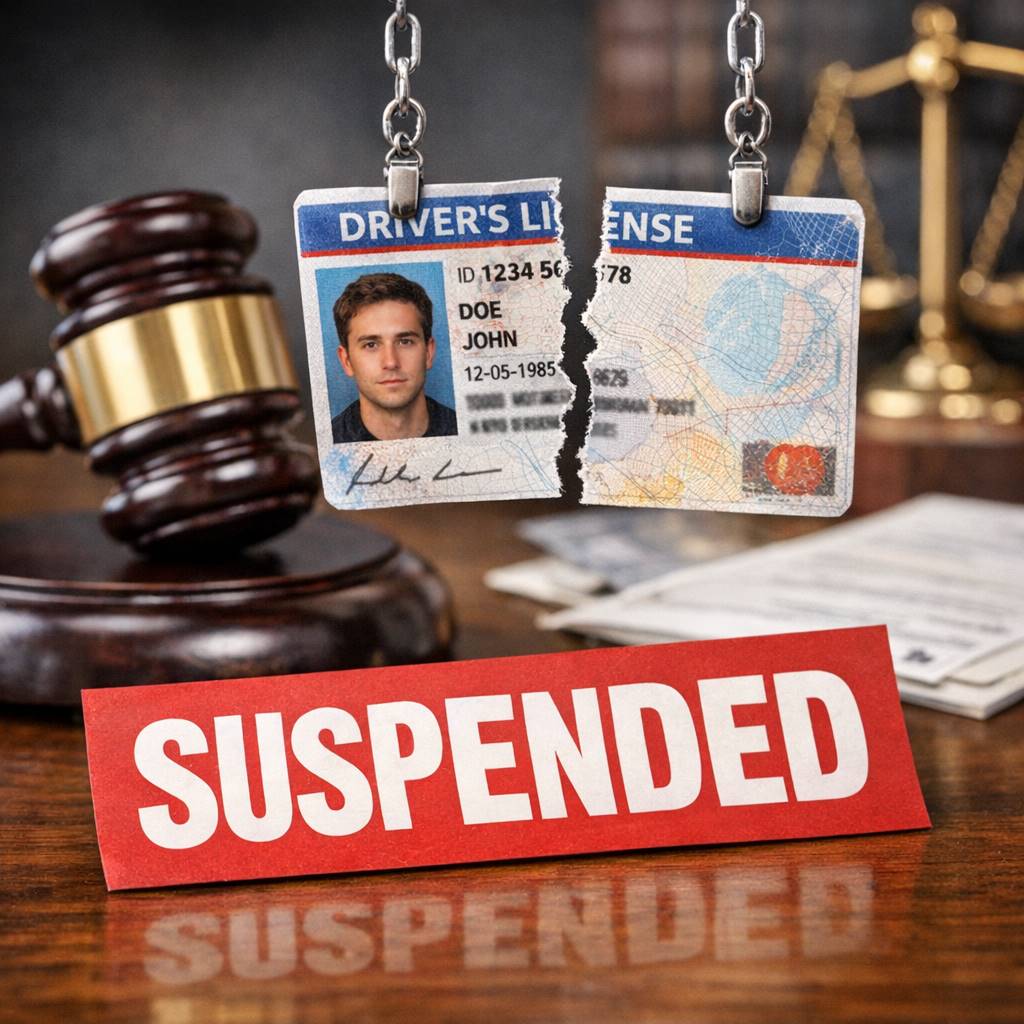Key Takeaways
- Ignition interlock violations can lead to licence suspension, program extensions, and serious legal trouble.
- Some violations are accidental, but Alberta can still impose penalties depending on the situation.
- Missed tests, failed breath samples, and tampering are common reasons people get flagged.
- You may have options to respond, appeal, or correct issues especially if the device malfunctioned.
- Getting legal guidance early can help protect your driving privileges.
Ignition Interlock Violation in Calgary
The Violation Gets Logged and Reported
The moment an ignition interlock device detects a problem, it usually doesn’t stay “between you and the machine.” Most violations are electronically recorded, and those records can be reviewed by both the service provider and provincial authorities. That means even if you manage to continue driving later, the incident may already be captured in the system.
Breath failures and missed tests are recorded
Ignition interlock devices don’t just track whether your vehicle starts. They also track your behaviour while you’re driving, including rolling retests (breath tests required after the vehicle is already running).
Common violations that get recorded include:
- Breath test failures (when the device detects alcohol above the permitted limit)
- Missed tests (when you don’t provide a breath sample in the required time window)
- Refusals (when the system registers you didn’t comply with a requested test)
- Startup failures followed by repeat failures
- Missed rolling retests, often due to panic, confusion, or not noticing the prompt
- Power disruptions or device interference that appear like tampering
- Failing to attend servicing and calibrations on time (which is often treated as non-compliance)
Alberta authorities and the program provider may review data
After a violation is recorded, the information can be reviewed by:
- The interlock program provider (the company managing the unit and the reports)
- Alberta authorities responsible for monitoring program compliance
The provider may check the violation data to determine:
- How often violations are happening
- Whether your results show a possible pattern (for example, repeated missed tests)
- Whether the device logs suggest tampering or intentional avoidance
- Whether the vehicle was started repeatedly after a failure
- Whether there were extended gaps between service visits
You may receive a warning notice or compliance review
1) A warning notice
A warning notice is often used when the violation is minor or appears to be a one-time issue. It’s essentially a signal that the system detected a problem and that you’re expected to correct your behaviour immediately.
2) A compliance review
A compliance review is more serious. It means Alberta authorities may evaluate whether you are continuing to meet the conditions of the program. This can happen when:
- There are multiple violations
- The device records suggest alcohol use
- Missed tests are frequent
- There are signs of interference, disconnects, or skipped servicing
- The logs show repeated attempts to start the vehicle after a failed test
Possible Licence Suspension or New Restrictions
After an ignition interlock violation in Calgary, one of the most stressful outcomes is the risk of a temporary loss of driving privileges or the addition of new conditions on your licence. Even though the ignition interlock program is meant to help you stay legally on the road, Alberta treats compliance as non-negotiable.

You may lose driving privileges temporarily
A serious interlock violation can trigger consequences that prevent you from driving for a period of time. In some cases, you may be told you cannot legally drive until your compliance issue is addressed or reviewed.
This can happen if:
- the device logs a breath test failure
- there are missed tests or skipped rolling retests
- the system flags behaviour that looks like tampering
- there is a pattern of violations, not just a one-time mistake
Even when the suspension is temporary, it often creates immediate problems, such as:
- not being able to commute to work in Calgary traffic-heavy areas
- missing shifts if your job depends on driving
- losing access to family responsibilities like childcare drop-offs
- struggling to attend appointments across the city without reliable transit
You could face additional reinstatement steps
Even if you aren’t fully suspended, an ignition interlock violation can lead to additional steps before you are allowed to continue driving under the program. These added requirements can feel like you’re being pushed backward, even if you were close to completing your interlock period.
Depending on the situation, you may face things like:
- a compliance review before you can continue driving
- updated conditions on your licence that make monitoring stricter
- extra documentation or follow-up requirements
- added time in the ignition interlock program
- stricter expectations around service appointments and device checks
Repeat violations often bring harsher consequences
A first violation may result in a warning or a review. But repeated violations usually lead to harsher consequences because Alberta may view repeated issues as a sign that you’re not complying with the purpose of the program.
Repeat violations may be treated more seriously when they involve:
- multiple breath test failures over time
- frequent missed or ignored rolling retests
- repeated patterns of “lockouts” or start failures
- ongoing servicing issues or device disconnects
- violations that appear deliberate rather than accidental
With repeat violations, drivers may face:
- longer driving restrictions
- increased monitoring and fewer chances for leniency
- a longer interlock requirement before you can move forward
- a higher risk of suspension compared to someone with one isolated mistake
Your Ignition Interlock Requirement Can Be Extended
One violation can extend your time in the program
Even a single violation such as a failed breath test or a missed rolling retest can lead to an extension of your ignition interlock requirement. This is especially true if the violation is considered serious or suggests alcohol use while driving.
In practical terms, an extension means:
- you remain on an interlock-restricted licence longer than expected
- you continue to operate under tighter driving conditions
- you delay your ability to return to a standard reinstated licence
Multiple violations can push completion farther away
If Alberta authorities see a pattern of repeated violations, the outcome can become more severe. Multiple violations are often viewed as ongoing non-compliance rather than a one-time mistake.
When violations stack up, you may experience:
- longer extensions added to your interlock term
- more difficulty proving you are ready to complete the program
- greater scrutiny of your driving history and device reports
- delays that feel like you are restarting progress instead of finishing
More costs for monthly fees, service, and monitoring
Monthly fees
Interlock programs involve ongoing monthly costs to keep the device active and compliant. The longer you stay in, the more you pay.
Service and monitoring
Regular servicing, calibration, and monitoring appointments are required to keep the device working properly and to ensure the data is recorded correctly. Extensions mean more visits, more time, and more ongoing costs.
Increased Costs and Insurance Problems
For many drivers, the cost of insurance becomes the biggest long-term burden. It’s not just the monthly interlock fee. It’s the ongoing price of staying insured while trying to get your life back on track.
High-risk insurance may increase again
If you’re already driving with ignition interlock in Alberta, there’s a strong chance you’ve been placed in a high-risk insurance category or you’re paying higher premiums than before your DUI situation started.
A violation can cause those rates to climb again, even if:
- you were making progress
- your premiums were starting to stabilize
- you had maintained a clean driving record since entering the program
Insurance companies often look at your overall risk profile. An ignition interlock violation may lead them to assume there is a continuing issue, such as:
- alcohol use before driving
- inconsistent compliance
- unsafe decision-making
- a higher chance of future claims
Some insurers treat violations like a major red flag
From an insurer’s point of view, an ignition interlock violation is not a minor technical issue. Many companies treat it as a major red flag because it suggests you may not be fully following the conditions meant to prevent impaired driving.
Even if your violation happened for an innocent reason like missing a rolling retest, being confused by a prompt, or triggering a false reading some insurers may not take the time to look at the details.
Instead, they may treat the violation as:
- a sign of ongoing risk
- evidence that the driver may still be struggling with alcohol-related driving issues
- a warning that another suspension or incident could happen
Premium spikes or cancellations can happen
Insurance companies have different internal policies, but once you’re flagged as higher risk, the consequences can be serious. After a violation, you may experience:
- a sudden premium increase at renewal
- an adjustment to your premium mid-term
- restrictions on what coverage options are available
- non-renewal by your insurer
- in some cases, cancellation depending on your policy terms and risk history
Premium spikes can hit your budget hard. And cancellations can be even worse, because once you’ve been cancelled or non-renewed, it often becomes harder to find new coverage at an affordable rate.
This creates a cycle that many Calgary drivers find overwhelming:
Ignition interlock violation → insurance concern → higher costs → more stress → more difficulty staying compliant
Common Reasons People Violate Interlock Rules
Mouth Alcohol and False Positives
One of the most common reasons drivers fail a breath test without drinking alcohol is mouth alcohol. Mouth alcohol happens when alcohol is present in your mouth, but not actually in your bloodstream. Ignition interlock devices can detect that alcohol and treat it like a true fail.
Even if you feel sober and are not impaired, this can still cause a test failure, a lockout, or a recorded violation that leads to further consequences.
Mouthwash, cough syrup, or hand sanitizer exposure
Many everyday products contain alcohol and can trigger a false positive, including:
- mouthwash and breath sprays
- cold and flu medicines like cough syrup
- alcohol-based hand sanitizer (especially if used right before testing in a closed vehicle)
- certain energy drinks or kombucha-type beverages
- perfumes, colognes, and aerosol sprays if used in the car
How long to wait before testing
If you’ve used any product that may contain alcohol, it’s smart to wait before blowing into the device.
A safe general approach is to:
- wait at least 10 to 15 minutes after using mouthwash, cough syrup, or anything alcohol-based
- avoid eating or drinking anything right before testing
- avoid smoking or vaping immediately before testing (it can sometimes irritate your mouth and affect results)
The goal is to let any trace alcohol clear from your mouth so your breath sample reflects your real condition.
Rinse and retest strategies (if permitted)
If your device prompts you to retest or you get a warning/fail reading, one practical strategy is to stay calm and do a clean reset routine.
If permitted under your program rules, you may be able to:
- rinse your mouth with water
- wait a few minutes
- try again with a fresh breath sample
Some drivers also find it helpful to keep:
- a bottle of water in the vehicle
- sugar-free gum (only if you have time to clear your mouth before testing)
Cold Weather Issues in Calgary
Battery problems and slow startups
A weak or struggling battery can cause interlock issues because the device relies on steady power. In cold Calgary weather, batteries often:
- drain faster overnight
- crank slower in the morning
- struggle during repeated start attempts
If the battery voltage dips too low, the ignition interlock may behave unpredictably, which can lead to:
- start failures
- device resetting
- error messages that look like non-compliance
- delays that cause missed test windows
Device freezing or delayed response
Interlock devices can become sluggish or unresponsive in extreme cold. Common winter-related issues include:
- the device screen lagging or responding slowly
- the unit taking longer than normal to “warm up”
- delayed prompts that appear at awkward times
- longer wait times before the breath sample is accepted
Why you should plan extra time
During winter in Calgary, it’s smart to build in extra minutes before you drive, especially in the morning. Rushing is one of the biggest reasons accidental violations happen.
To reduce risk, plan for:
- extra warm-up time for your vehicle
- extra time for the interlock device to respond
- a calm testing process instead of a rushed one
Missed Retests Due to Work, Traffic, or Stress
In Calgary, where traffic and commuting pressure are real, missed rolling retests are a common reason for violations even for sober drivers.
Rolling retests can happen unexpectedly
A rolling retest can happen when:
- you’re in rush-hour traffic
- you’re merging onto a busy roadway
- you’re driving through construction zones
- you’re approaching a turn or exit
- you’re focused on winter road conditions
Tips to safely pull over and complete the retest
The safest way to handle a rolling retest is to treat it as a driving safety issue first, and a compliance issue second.
Practical tips include:
- stay calm and keep both hands steady on the wheel
- scan for a safe place to pull over if needed
- avoid trying to blow while making a lane change or turning
- if you can safely do so, complete the test while maintaining full control of the vehicle
- don’t slam the brakes or stop somewhere unsafe just to blow quickly
Why ignoring it can trigger a violation
Some drivers ignore a rolling retest because they assume it’s optional or they think they can do it later. Unfortunately, rolling retests are usually not flexible.
If you ignore the prompt, the device may record:
- a missed test
- non-compliance
- a violation event that triggers consequences
Even if you were sober, the system may treat the missed retest as a serious breach because it cannot confirm compliance.


